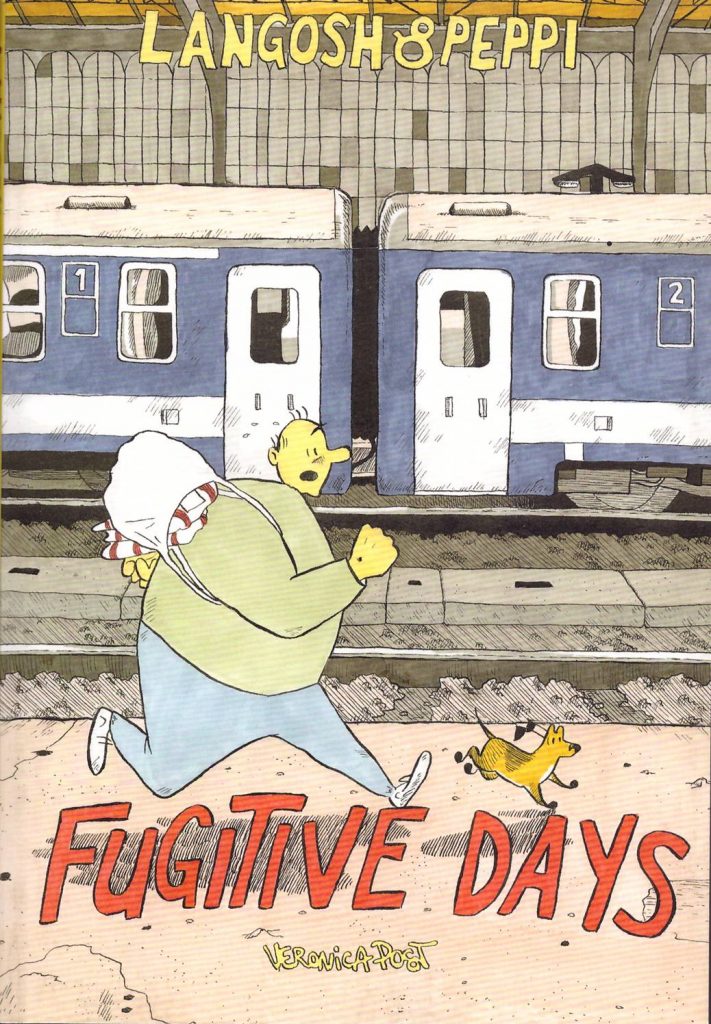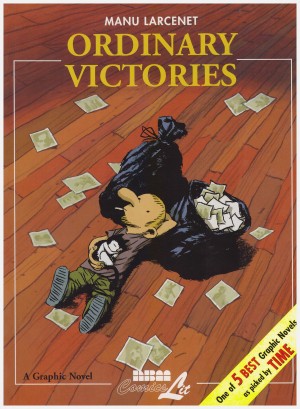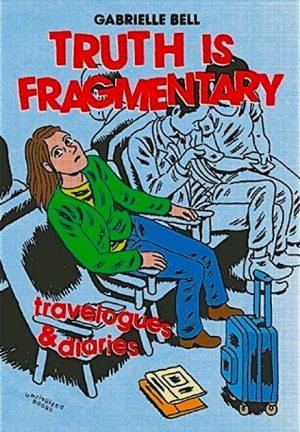Review by Ian Keogh
Fugitive Days is a fictionalised version of the journal Veronica Post kept during her time in Hungary and bordering countries between 2012 and 2015. Everything is based on real experiences, but Post distances them from those of herself and her boyfriend by transferring them to the middle-aged Langosh and his dog Peppi. Their names at the top of the cover, though, make it seem as if they’re a previously unknown European creative team.
Langosh is escaping Canadian justice, which is hinted at without ever entirely being explained, and as Fugitive Days begins he has to renew his visa to stay in Hungary for another three months, a process that involves crossing a border and re-entering the country. The hope is that a Canadian passport won’t come under much official scrutiny, and re-entry will be a simple matter. What follows is astounding, but as backed-up via an endearing Brian Hibbs interview with Post on You Tube, the places Langosh visits all exist. In Eastern Europe subterranean remnants of the Soviet era are common, as are the results of conflict, sometimes terrifyingly so. Because he has so little money, Langosh has a vagabond lifestyle, and searching for places to spend the night leads to jaw-dropping discoveries. These are accompanied by personal insights, such as Langosh sitting in a cafe in Sarajevo wistfully wondering what he’d be doing in Canada were he still there. That’s immediately replaced by the realisation that he wouldn’t be thinking about having coffee in Sarajevo.
Artistically, Post keeps things simple unless drawing a specific memory, when the style morphs into greater detail with shading and hatching to really bring a location to life. There are places where relative inexperience extends a scene that could be more efficiently presented, but the required emotions transmit.
Fugitive Days is split into four chapters, a short introduction, a trip around the former Yugoslav states, a spell in the Hungarian countryside and a return to Budapest. Each section contains staggering moments, while Post incudes the anecdotes of others, some funny, some tragic, and we’re introduced to an assortment of eccentrics, Siberian artist Yeva topping that list. They slide naturally into Langosh’s experiences, which are well told, no single day like the next. Some moments make for extremely uncomfortable and even distressing reading, even more so when it’s remembered Post is using an overweight man as an avatar when she actually lived through these events.
If there’s any kind of moral to Fugitive Days, it’s that it takes all kinds to make a world, and people are very rarely what we expect them to be at a glance. Langosh is treated with considerable kindness by strangers, who may then drop racist comments. That’s a topic that comes into focus when Langosh returns to a Budapest now over-run with Syrian refugees, for whom there’s no kindness or understanding. There’s no lack of that about Post who delivers autobiographical reportage that’s compassionate and accessible while teaching us something about the world. It’s a very promising first graphic novel, and may there be plenty more.





